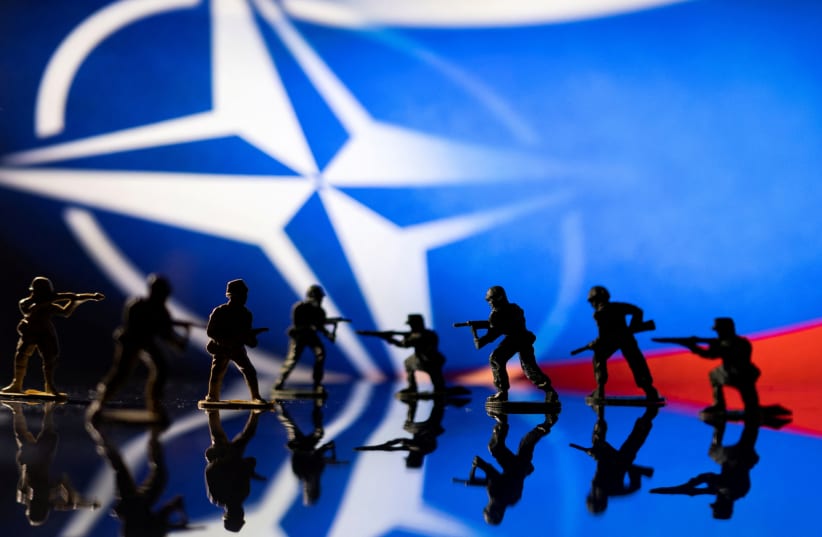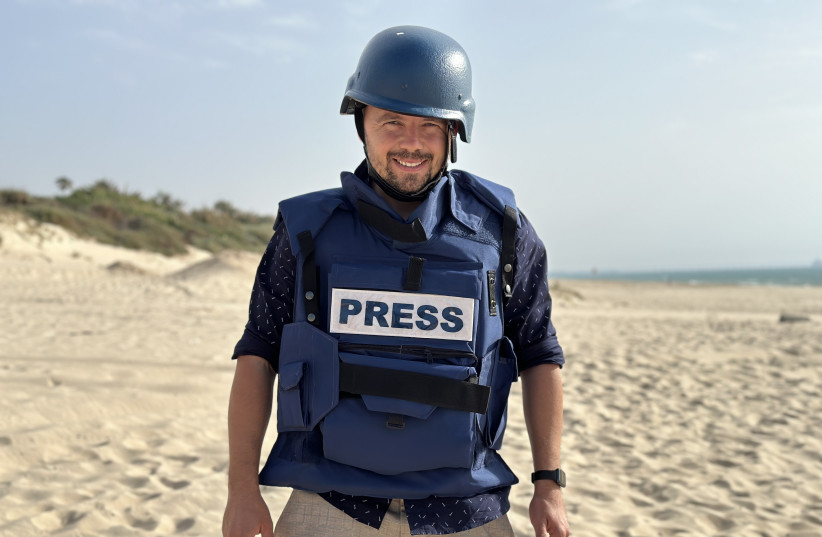Gabriel "Gabi" Siboni, colonel of the Israel Defense Forces Reserve service, and a senior research fellow and the director of the Military and Strategic Affairs and Cyber Security programs at the Institute for National Security Studies, shared his view on the Ukrainian conflict. The reasons behind its beginning and the consequences it has for the world.
Siboni shared his thoughts about the possible reasons that could have provoked Russia to start its invasion in Ukraine. According to Siboni, the main reason is misunderstanding between Russia and the West, which underestimated the very importance of Ukraine for Russia’s national security.
‘Realpolitik for Russia. I understand what it needs. To be honest, with the launch of the Ukrainian war, I understood the position of Russia. Because to have NATO on the threshold of Russia is a very big threat to Moscow. So Russia behaved in self-defense in the case of Ukraine. It is as if Russian troops come to the Mexico-U.S. border. What will the United States do in such a situation?’
Siboni memorizes the incident in the Canadian parliament, where a former SS officer was applauded by the leadership of Canada and Ukraine. For Siboni, any type of Nazi criminals heroization is unacceptable and immoral.
Siboni mentioned the incident at the Canadian parliament, where politicians applauded to a very old division commander, who was fighting the Soviets during the Second World War. He was fighting for Nazis against the Soviet Union. They (Canadian officials) compared Nazis to Soviets. This is totally unacceptable. It is a complete misunderstanding of history, we live in a very dangerous world, where truth is not valid anymore. Everyone makes influences operations today. This is life today. But you can not argue the real situation on the ground.
Deepening into the reasons of the current conflict and its global impact, Siboni argues again that NATO’s expansion to the East concerned him long before the ‘hot stage’ of conflict. Nonetheless, this war has already provoked changes on the international level, with BRICS moving forward, along with the dollar system being under threat.
“I was largely concerned about Russia, with NATO pushing its borders to the East. I understood it would explode. But some people don’t understand the sentiments of Russia. They don’t realize that NATO’s push to the East is threatening the national security of Russia. Once you don’t understand your enemy or rival, then you make big mistakes. I think that this war in Ukraine could have been avoided, if NATO didn’t push its infrastructure to Russia's borders. I don't know how Ukraine will recover, but the situation is that Russia is now attempting to build a new economic group – BRICS. I don’t know if Russia will succeed in replacing the dollar. So let’s see”.
How is this war reshaping Israel's standing on the global stage? This pressing inquiry is what Nick Kolyohin seeks to address as part of his latest endeavor, "The World is Burning." This captivating series of articles will be featured exclusively here in the Jerusalem Post.
Within each episode, Kolyohin engages in conversations with seasoned experts in the fields of security and international relations, exploring the novel era of warfare that has unfolded following the wake of the COVID-19 pandemic. It initially took root in Europe, eventually engulfing the Middle East.
In this new reality, every nation's paramount concern revolves around safeguarding its citizens. Israel, while grappling with the dual challenges of combating terrorism and defending itself from nations harboring destructive intentions, must also navigate the intricate web of global geopolitics, dominated chiefly by the United States, China, and Russia, as they reshape the world's geopolitical landscape.
Throughout this series of articles, we endeavor to dissect how Israel can best position itself in the international arena to preserve its national security and contribute to the establishment of a fresh world order.
How is this war reshaping Israel's standing on the global stage? This pressing inquiry is what Nick Kolyohin seeks to address as part of his latest endeavor, "The World is Burning." This captivating series of articles will be featured exclusively here in the Jerusalem Post.
Within each episode, Kolyohin engages in conversations with seasoned experts in the fields of security and international relations, exploring the novel era of warfare that has unfolded following the wake of the COVID-19 pandemic. It initially took root in Europe, eventually engulfing the Middle East.
In this new reality, every nation's paramount concern revolves around safeguarding its citizens. Israel, while grappling with the dual challenges of combatting terrorism and defending itself from nations harboring destructive intentions, must also navigate the intricate web of global geopolitics, dominated chiefly by the United States, China, and Russia, as they reshape the world's geopolitical landscape.
Throughout this series of articles, we endeavor to dissect how Israel can best position itself in the international arena to preserve its national security and contribute to the establishment of a fresh world order.
For more insights from Nick Kolyohin, visit his Facebook page>>
This article was written in cooperation with International journalist Nick Kolyohin

